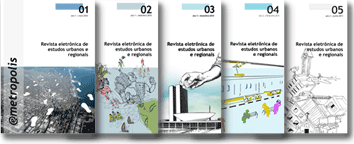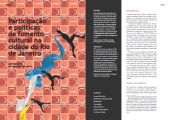-
Tweets
Hierarquia, policentrismo e complexidade em sistemas urbanos
Por Carlos Gonçalves
RESUMO
A discussão sobre a configuração dos sistemas urbanos mantém centralidade nos estudos regionais e urbanos. Este artigo concorre para que se possam integrar as noções de hierarquia, de rede, de policentrismo e de complexidade na compreensão destes dispositivos (os sistemas urbanos). Analisando os principais traços que marcaram a transição das estruturas hierárquicas para lógicas de rede, a afirmação do policentrismo por oposição a configurações hierárquicos rígidas e o aprofundamento da dicotomia entre segmentar ou integrar os elementos que compõem os sistemas urbanos, aportamos na necessidade de compreender estes organismos como sistemas complexos. Escolher entre privilegiar a componente analítica (interpretação) ou a operativa (intervenção) é redutor e amplifica os riscos de se desbaratar o potencial de desenvolvimento patente (ou latente) na malha das relações locais-regionais-globais.
Palavras-chave: Sistemas urbanos; Hierarquia; Redes; Policentrismo; Complexidade.
ABSTRACT
The configuration of the urban systems is a central theme on the urban and regional studies. This article contributes to accommodate the terms of hierarchy, network, polycentrism and complexity when it comes to understand those mechanisms (the urban systems). The most important characteristics of the hierarchical structures transition to the reticular systems are considered and the dichotomy between segment and integrate the elements that comprise the urban systems is analysed. Therefore, the urban linkages are viewed through the lens of the complex systems. To focus on one of the components (both when interpreting and intervening) is reductive and increases the risks of destroying the evident (or latent) development potential in the network of local-regional-global relationships.
Keywords: Urban systems; Hierarchy; Networks; Polycentrism; Complexity.



